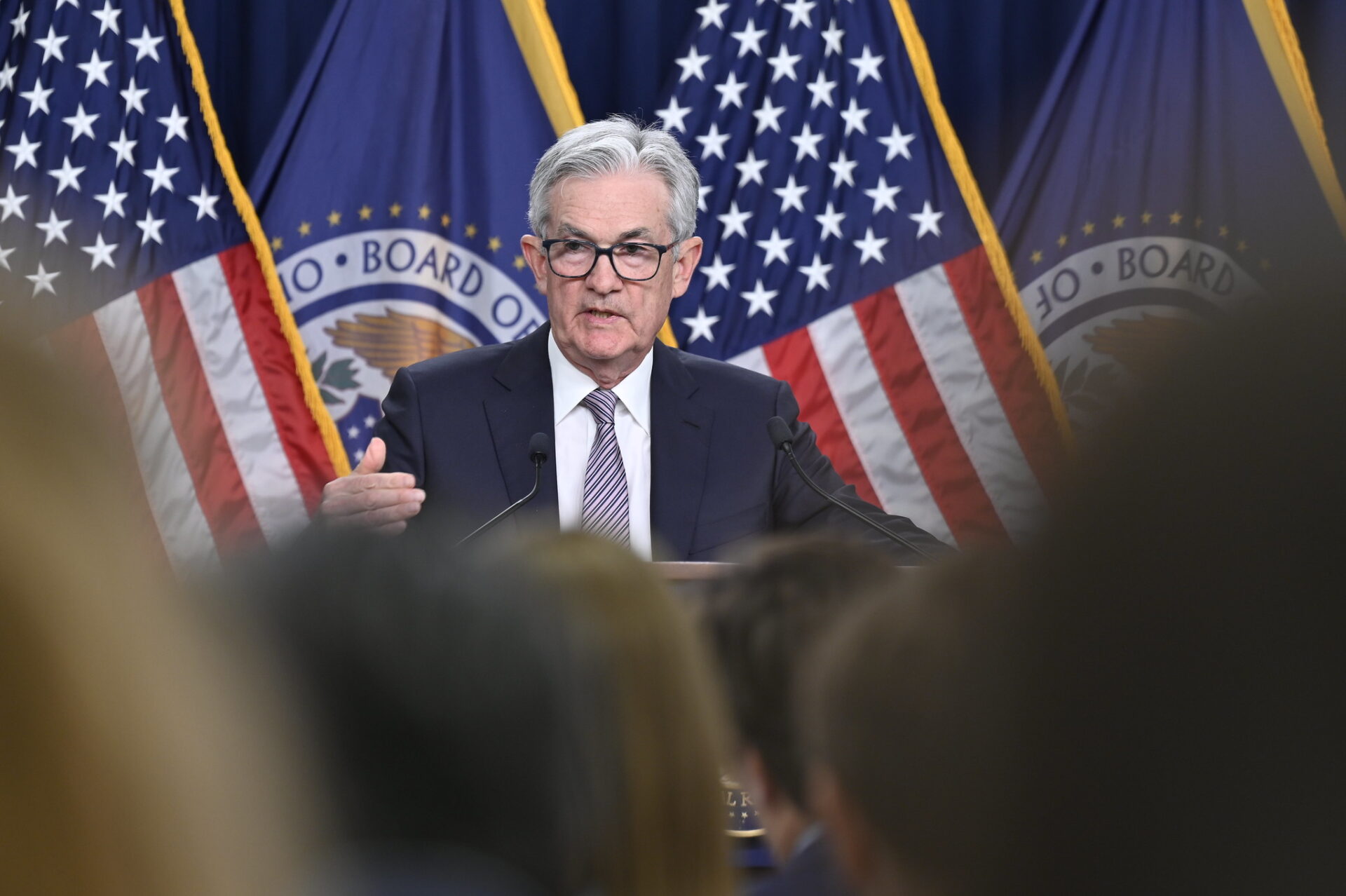By PATRICK LAVERY
Saying the economy has surprised even the experts since the start of the COVID-19 pandemic nearly four years ago, Federal Reserve Board Chairman Jerome Powell on Wednesday announced that the Fed would hold its ground for now and keep its policy interest rate unchanged at its current range of 5.25% to 5.5%.
“We believe that our policy rate is likely at its peak for this tightening cycle and that, if the economy evolves broadly as expected, it will likely be appropriate to begin dialing back policy restraint at some point this year,” Powell said in prepared remarks following the first two-day Federal Open Market Committee meeting of 2024.
The decision by the FOMC was not unexpected, and the nebulous timeline of a rollback sometime in the next 11 months matched what Fed Governor Christopher Waller said in a speech in mid-January. Some forecasting tools predict a rate cut at the Fed’s next meeting; other economists believe the ramping down is further away.
As for the longstanding goal of getting inflation down to 2%, which Powell has maintained drives a majority of the Fed’s decision-making, total personal consumption expenditure prices rose 2.6% over 2023 as a whole, while core PCE prices, excluding the food and energy sectors, climbed 2.9%.
The Fed is starting to feel some legislative pressure.
Before Wednesday’s announcement, a letter sent by U.S. Sen. Elizabeth Warren (D-Mass.), a member of the Senate Banking, Housing, and Urban Affairs Committee, along with fellow Sens. John Hickenlooper (D-Colo.), Jacky Rosen (D-Nev.), and Sheldon Whitehouse (D-R.I.), urged Powell and his colleagues to lower the key rate.
“Mortgage rates have risen to 20-year highs in the past year – a direct result of the Federal Reserve’s campaign of aggressive hikes to the federal funds rate,” the letter said, adding that rental prices also remain high compared to pre-pandemic levels.
This letter was addressed 35 minutes into a press conference on Wednesday when senior reporter Nancy Marshall-Genzer from Marketplace asked how closely the FOMC is watching rent and housing prices as they evaluate whether and when to cut rates.
“It seems like housing prices are not coming down as quickly as you expected,” Marshall-Genzer said.
Powell said their statutory goals are maximum employment and price stability, not housing price inflation or the cost of housing. He added that when they cut rates at the beginning of the pandemic, the housing industry was helped more than any other industry.
Powell acknowledged that when they raise rates the housing industry can be hurt. He said they do not have the tools to address the problem of the lack of inventory, which is keeping housing prices high.
“What is your response to the letter that was sent to you by some members of Congress asking the Fed to lower interest rates to make housing more affordable?” Marshall-Genzer asked.
Powell said, “My response is what I started with, is that our job, the job Congress has given us, is price stability and maximum employment. Price stability is absolutely essential for people’s lives, most importantly, not most importantly, mostly, for people at the lower end of the income spectrum who are living at the edges, at the margins,” Powell said.
Powell said that middle-class people have some scope to absorb higher costs.
“It’s our job, it’s what society has asked us to do, is to get inflation down, and the tools that we use to do it are interest rates. So that’s how we think about that,” Powell said.
While the Senators did not get what they asked for on Wednesday, the overall optimism expressed by Powell – though still somewhat tempered – that rates will indeed be lowered in 2024 was taken as a good sign for the housing market.
Count National Association of Realtors Chief Economist Lawrence Yun among those seeing a rosier outlook, as he elaborated upon in a statement following Powell’s press conference.
“Let’s recall that before the COVID-induced economic lockdown, the Fed funds rate was near 2%, and the 30-year fixed mortgage rates were at nearly 4%. We will not return to this level this year or next year,” Yun wrote. “Mortgage rates will likely be in the 6% to 7% range for most of the year. This current rate is lower compared to the high of 8% a few months ago, which is helping to improve housing affordability. More homebuyers will return to the market. Many delayed home sellers may be willing to give up 3%-4% rates as life circumstances have changed, thereby boosting inventory. Home sales will no doubt rise this year.”
The FOMC next meets as winter turns to spring, on March 19 and 20.
Editor Kimberley Haas contributed to this report.
Read More Articles:
It’s Time To Make Deals: Nectar CEO Derrick Barker Sees Market Opportunities
Is Investing In Real Estate Or The Stock Market Better In 2024?
To Buy Or Not To Buy? Homeowners Offer Insights
Listen To Our Podcast:
Sign up for our free newsletter.
